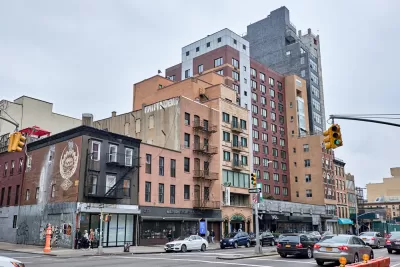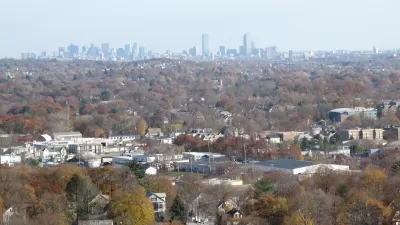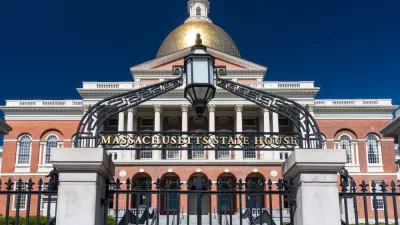Far from an obscure, wonky local issue, zoning reform has the potential to advance social justice in American cities.

The recent focus on the effects of exclusionary zoning is a crucial part of reforming housing policy and addressing discrimination and racism in housing and land use in the United States, writes Richard D. Kahlenberg in the New York Times. "Although zoning may seem like a technical, bureaucratic and decidedly local question, in reality the issue relates directly to three grand themes that Joe Biden ran on in the 2020 campaign: racial justice, respect for working-class people and national unity." Eliminating "economically discriminatory zoning policies," argues Kahlenberg, is a crucial step toward advancing those campaign goals.
"Removing exclusionary barriers that keep millions of Black and Hispanic people out of safe neighborhoods with strong schools is central to the goal of advancing racial justice." Despite a Supreme Court decision that struck down racial zoning in 1917, new policies like single-family zoning and redlining soon took its place, effectively creating the same barriers for families of color. "Racial discrimination has created an enormous wealth gap between white and Black people, and single-family-only zoning perpetuates that inequality." In fact, "the most restrictive zoning is found in politically liberal cities, where racial views are more progressive," relying on mechanisms that separate households by income and class to keep neighborhoods segregated. "Class discrimination helps explain why, despite a 25 percent decline in Black-white residential segregation since 1970, income segregation has more than doubled."
Reforming zoning, writes Kahlenberg, is necessary for achieving racial and economic justice. "After decades of federal inaction on this issue, Congress must move boldly to embrace the country’s anti-racist and anti-elitist mood to remove state-sponsored barriers that divide the nation’s people."
FULL STORY: If You Care About Social Justice, You Have to Care About Zoning

Alabama: Trump Terminates Settlements for Black Communities Harmed By Raw Sewage
Trump deemed the landmark civil rights agreement “illegal DEI and environmental justice policy.”

Planetizen Federal Action Tracker
A weekly monitor of how Trump’s orders and actions are impacting planners and planning in America.

The 120 Year Old Tiny Home Villages That Sheltered San Francisco’s Earthquake Refugees
More than a century ago, San Francisco mobilized to house thousands of residents displaced by the 1906 earthquake. Could their strategy offer a model for the present?

Ken Jennings Launches Transit Web Series
The Jeopardy champ wants you to ride public transit.

BLM To Rescind Public Lands Rule
The change will downgrade conservation, once again putting federal land at risk for mining and other extractive uses.

Indy Neighborhood Group Builds Temporary Multi-Use Path
Community members, aided in part by funding from the city, repurposed a vehicle lane to create a protected bike and pedestrian path for the summer season.
Urban Design for Planners 1: Software Tools
This six-course series explores essential urban design concepts using open source software and equips planners with the tools they need to participate fully in the urban design process.
Planning for Universal Design
Learn the tools for implementing Universal Design in planning regulations.
Clanton & Associates, Inc.
Jessamine County Fiscal Court
Institute for Housing and Urban Development Studies (IHS)
City of Grandview
Harvard GSD Executive Education
Toledo-Lucas County Plan Commissions
Salt Lake City
NYU Wagner Graduate School of Public Service





























